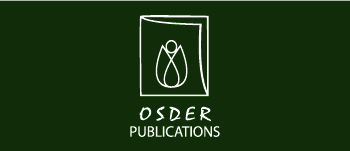Online Human Rights Defenders (OHRDs):Recognition, Challenges and Prospects
Abstract
<p style="text-align: justify;"><em>In recent years, the power balance in several countries including Bangladesh has been shifted in different ways due to internet penetration. Online activities by emerging Human Rights Defenders (HRDs) such as cyber dissidents, bloggers, online activists and journalists have thrown challenges against the authoritarian regimes, perpetrators of human rights violations, and also promulgation of repressive laws and policies. In Bangladesh, online activities by HRDs have unleashed a great potential by using digital technologies and also increased visible but less vibrant power and change within the society, which has consequences in offline as well. Perhaps, this is one of the major reasons that the existing power gamblers in local and national politics are very much reluctant to ensure internet freedom and digital rights of people. On the other hand, different non-state actors along with state apparatus are also targeting HRDs for their online and offline activities in Bangladesh which clearly hamper freedom of speech, thought and expression. Therefore, there is strong need to protect and promote HRDs activities online and offline to bring positive and rights based changes into society. The legal system of Bangladesh is yet to recognize formally the term HRDs. Being the signatory to the UN Charter, Bangladesh also should recognize the “United Nations Declaration on Human Rights Defenders”, adopted by the United Nations General Assembly Resolution in 1998. According to the Declaration, anyone working for the promotion and protection of human rights, from their personal or organizational capacity is called a Human Rights Defenders. This broad definition includes non-state actors such as volunteers, journalists, lawyers, activists, students, academia and anyone else carrying out their activities on human rights field. This declaration also recognizes some rights to the human rights defenders, e.g. freedom of expression, right to privacy, freedom of assembly, right to be protected, the right to develop and discuss new human rights ideas and to advocate for their acceptance, the right to criticize government bodies and agencies and to make proposals to improve their functioning, the right to provide legal assistance or other advice and assistance in defense of human rights, the right to unhindered access to and communication with non-governmental and intergovernmental organizations, and international bodies; and so on. Due to the increasing ostensible and repressive measures by the state and non-state actors to the human rights defenders, the time has come to adopt Declaration in our local context in order to secure their activities as well as the human rights defenders. On the other hand, there have been recent developments to deal with the increasing online activities worldwide by the bloggers, online activists, journalists and citizens themselves. The Council of European Union Member States adopted the “EU Human Rights Guidelines on Freedom of Expression Online and Offline” in Brussels on 12 May, 2014. The declaration emphasizes on protection of all the human rights online, which are already existing offline, in respect the right to freedom of opinion and expression. Therefore, we should also bring the academic intervention with the term “Online Human Rights Defenders” in Bangladesh. Recognition of this term Online Human Rights Defenders (OHRDs) in academic arena and insertion of this term in our existing laws and policies could be one of the strategies to protect OHRDs from ostensible government measures or repressions by non-state actors. Also, reformation of existing laws regarding Information and Communication Technology or Cyber Crime with the special focus on OHRDs, can provide some judicial safeguards to the OHRDs more and will encourage more human rights activities in future. Lastly, liberal application the concept of “Freedom of Speech, Thought and Conscience” in online activities will create more space to mingle the different ideologies regarding online activities and regarding the OHRDs.</em></p>
Full Text: PDF
745 0

Latest News
Visitors Counter
1924
 Today 1
Today 1 
